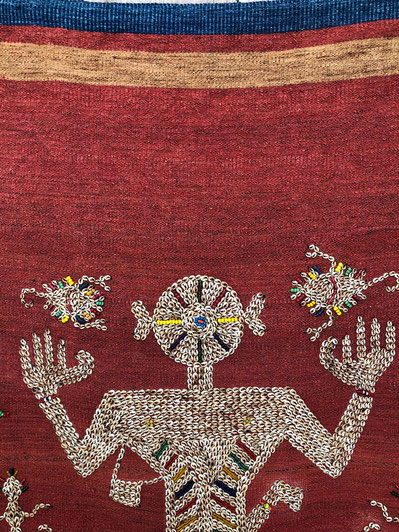funerary customs and ancestors worships
Funerary customs and ancestor worship are central aspects of the culture on Sumba Island, Indonesia. These practices are deeply rooted in the island’s traditions and reflect the local people's spiritual beliefs, social structures, and reverence for their ancestors.
Funerary Customs
Marapu Religion:
The indigenous Marapu religion, practiced by many on the island, is an animist belief system that emphasizes the worship of spirits, including ancestral spirits. This religion shapes the funerary customs on Sumba.
Megalithic Tombs:
Sumba is renowned for its megalithic tombs, which are large stone structures built to honor the deceased. These tombs are often elaborately decorated and can take years to construct, sometimes costing a significant portion of a family's wealth. The tombs serve as a final resting place for the dead and are believed to connect the deceased with the spiritual realm.

Ritual Sacrifices:
Funerary rites in Sumba often involve animal sacrifices, particularly of water buffaloes, pigs, and occasionally horses. These sacrifices are made to honor the deceased and ensure their safe passage to the afterlife. The number of animals sacrificed often reflects the social status of the deceased.
Extended Mourning Period:
The mourning period in Sumba can be extensive, sometimes lasting several months or even years, depending on the status of the deceased. During this time, the family prepares for the final burial ceremony, which is a major social event.
Pasola Festival:
In West Sumba, the Pasola festival, which involves ritual battles on horseback, is sometimes connected to funerary practices. This festival is held in honor of the ancestors and the Marapu spirits and is considered a form of ancestral worship.
Ancestor Worship
Ancestral Spirits:
The Sumbanese people believe that the spirits of their ancestors continue to influence the living world. Ancestor worship is a way to maintain a connection with these spirits, seeking their guidance, protection, and blessings.
Household Shrines:
Many Sumbanese households have shrines or sacred spaces dedicated to their ancestors. These shrines are places where offerings, such as food and betel nuts, are made to honor the spirits.
Inheritance and Status:
Ancestor worship is closely tied to the inheritance of land and social status. The living family members are seen as stewards of the ancestral land, and maintaining the proper rituals is crucial for ensuring the continued prosperity and protection of the family.
Rituals and Festivals:
Regular rituals and festivals are held to honor the ancestors, often coinciding with significant agricultural events or community gatherings. These rituals reinforce the social bonds within the community and reaffirm the importance of the ancestors in daily life.
Cultural Significance
The funerary customs and ancestor worship in Sumba are not just religious practices but also serve as a way to reinforce social structures, maintain cultural identity, and connect with the spiritual world. These practices are an integral part of the Sumbanese way of life, reflecting their deep respect for tradition and the past.


